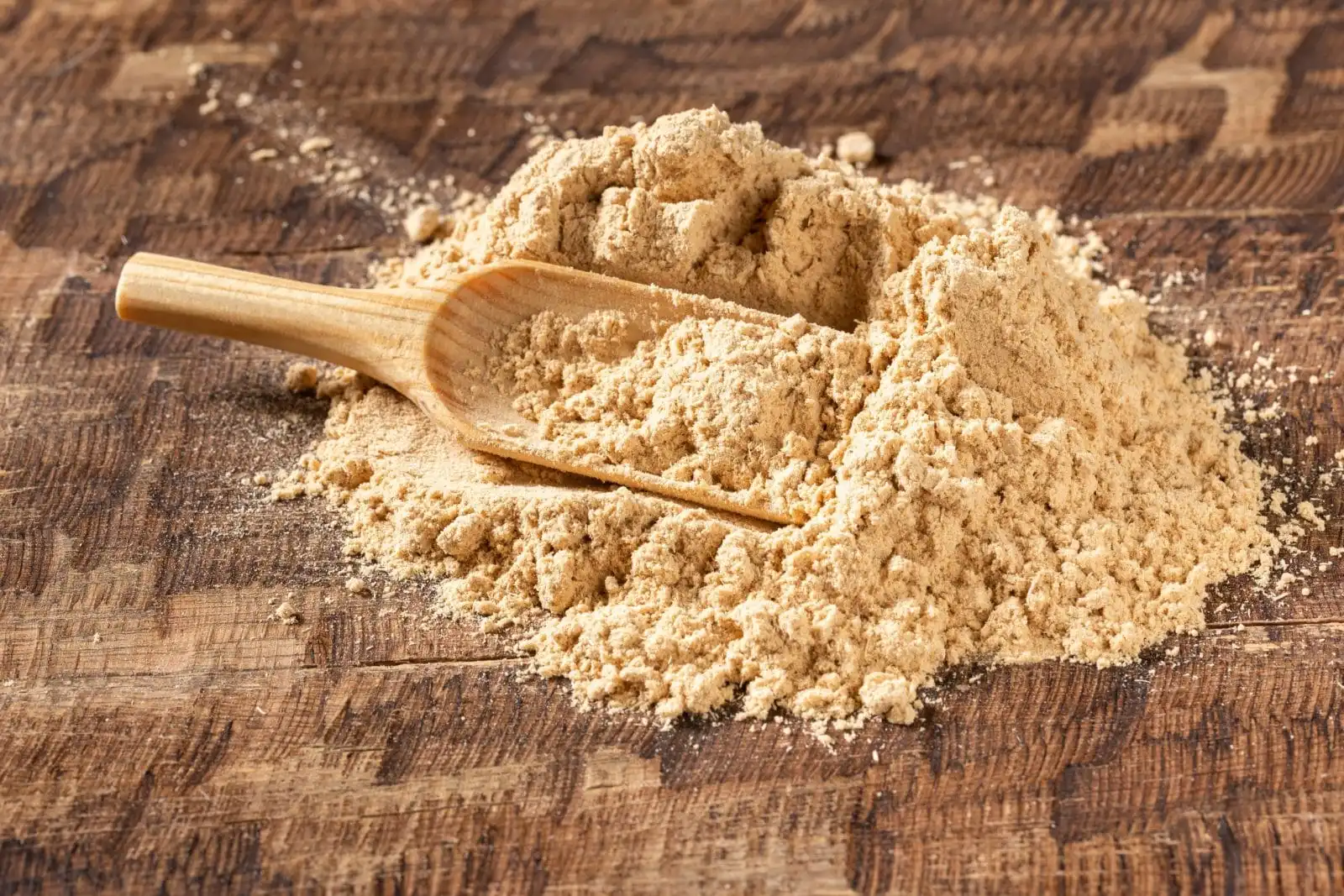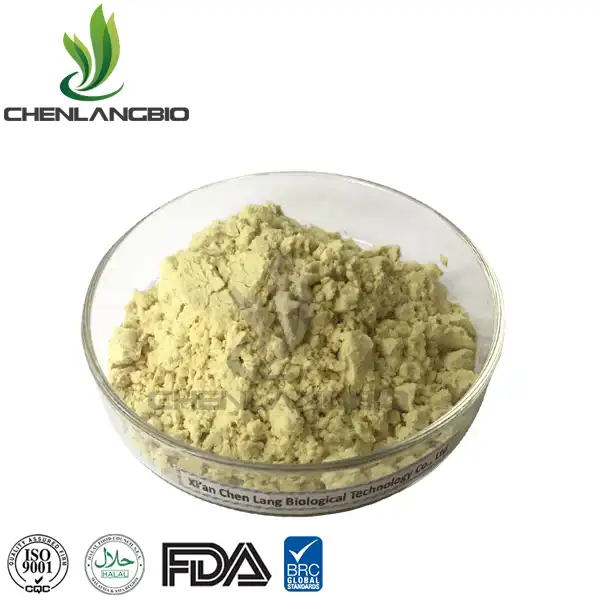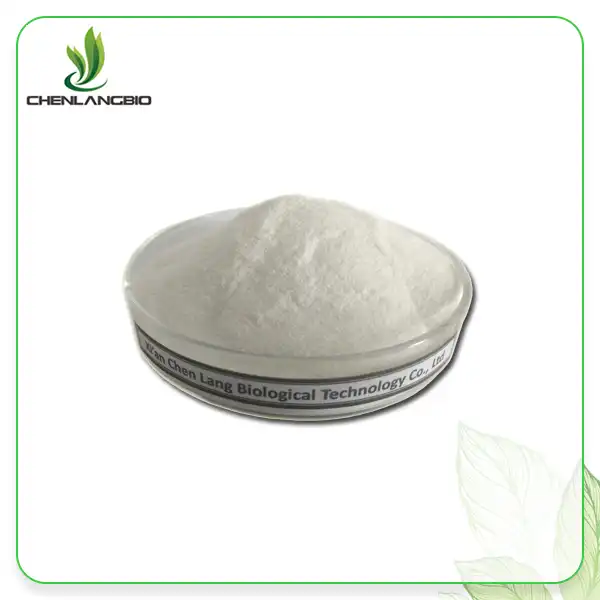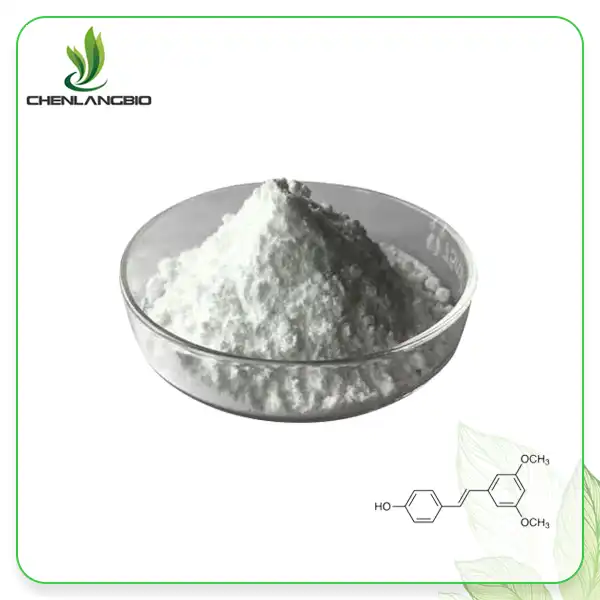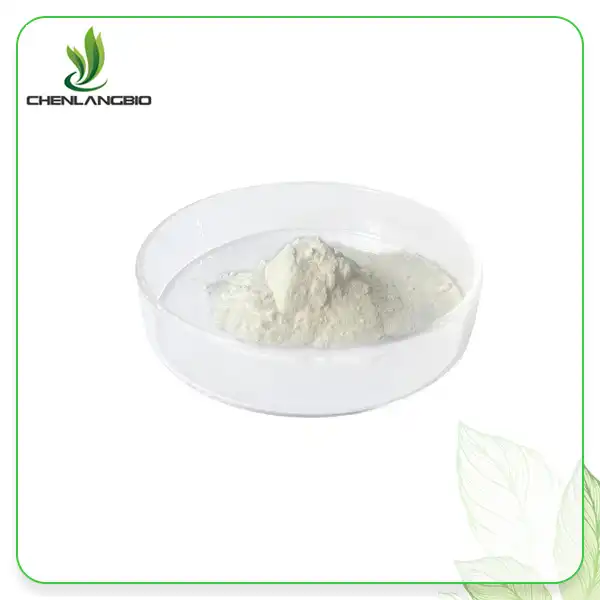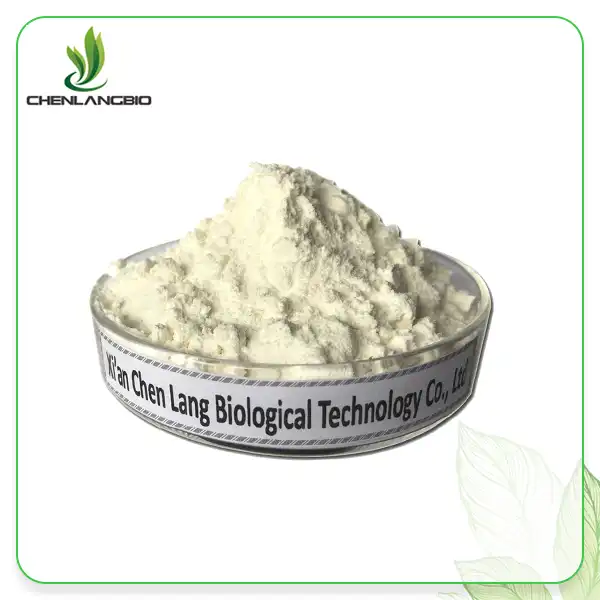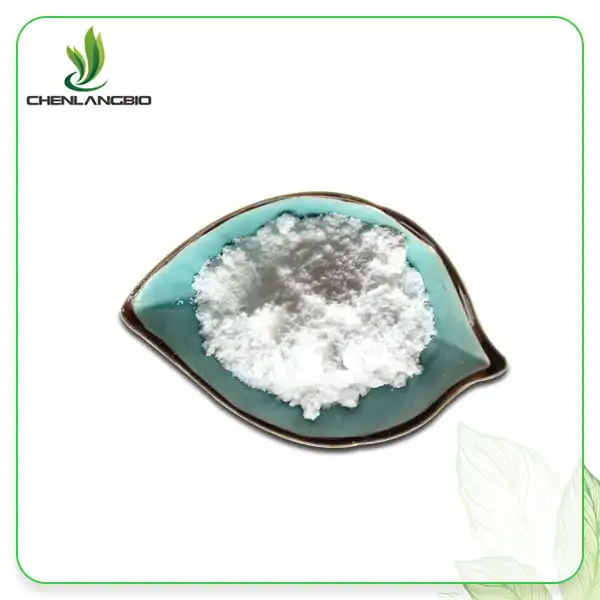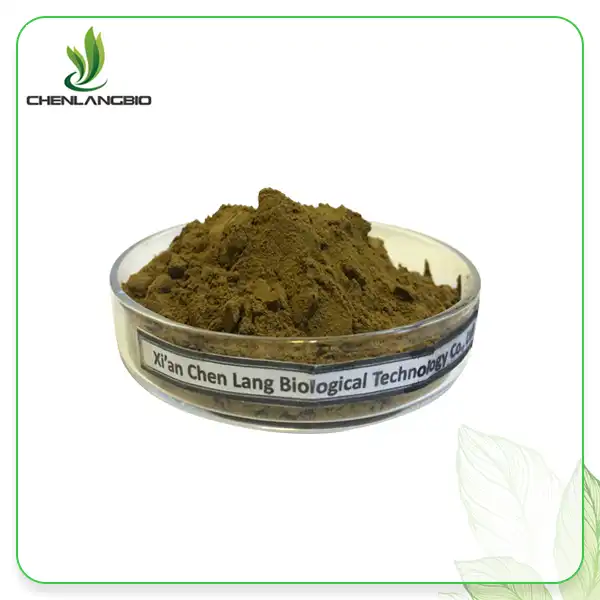What are the Potential Health Benefits of Spermidine Supplementation?
2025-04-03 08:13:39
Spermidine supplementation has garnered significant attention in the scientific community for its remarkable potential health benefits. As a naturally occurring polyamine found in various foods and human cells, spermidine plays crucial roles in numerous cellular processes. Spermidine hydrochloride, a specialized form of this compound, has shown promising results in promoting autophagy—the body's natural cellular cleaning mechanism. This process helps remove damaged cellular components, potentially slowing aging processes and reducing the risk of age-related diseases. From cognitive enhancement to cardiovascular support, the health benefits of spermidine supplementation span multiple body systems.
Cellular Regeneration and Anti-Aging Effects
The relationship between spermidine and longevity has become a focal point in anti-aging research, with compelling evidence suggesting significant benefits for cellular health and aging prevention.
Autophagy Promotion and Cellular Cleaning
Spermidine Hydrochloride stands out as one of the most potent natural inducers of autophagy, the cellular self-cleaning process essential for maintaining optimal cellular function. This remarkable polyamine activates specific signaling pathways that trigger the formation of autophagosomes, structures responsible for engulfing and eliminating damaged cellular components. During autophagy, cells systematically remove protein aggregates, dysfunctional mitochondria, and other cellular debris that accumulate over time and contribute to cellular aging. Regular supplementation with Spermidine Hydrochloride has been shown to significantly enhance this cleaning process, effectively rejuvenating cells and restoring their functionality. By maintaining efficient autophagy mechanisms, cells can better withstand various stressors and maintain their youthful characteristics for longer periods, potentially extending the healthy lifespan. Research conducted in both animal models and human subjects has demonstrated that autophagy promotion through spermidine supplementation correlates with improved cell vitality, reduced age-related cellular changes, and enhanced tissue regeneration capabilities.
DNA Protection and Repair Mechanisms
Spermidine hydrochloride demonstrates remarkable capabilities in safeguarding genetic material from damage while enhancing the body's natural DNA repair systems. This polyamine compound has a direct protective effect on DNA structure, binding to the genetic material and providing a physical barrier against oxidative damage from free radicals and other environmental toxins. Beyond passive protection, Spermidine Hydrochloride actively stimulates expression of genes responsible for DNA repair enzymes, effectively boosting the cell's inherent ability to identify and correct genetic mutations. Studies have revealed that individuals with higher spermidine levels typically exhibit fewer DNA strand breaks and chromosomal abnormalities, suggesting enhanced genomic stability. Additionally, Spermidine Hydrochloride appears to modulate telomere maintenance—the protective caps on chromosomes associated with cellular aging—potentially slowing the rate of telomere shortening that occurs naturally with age. By preserving DNA integrity through these multiple mechanisms, spermidine supplementation may help prevent various age-associated conditions, including cancer, neurodegenerative diseases, and overall functional decline typically seen in aging populations.
Antioxidant Properties and Free Radical Scavenging
Spermidine Hydrochloride exhibits powerful antioxidant capabilities that extend beyond conventional antioxidants, working through both direct and indirect mechanisms to combat oxidative stress. As a direct antioxidant, this polyamine efficiently neutralizes harmful reactive oxygen species (ROS) and free radicals that would otherwise damage cellular structures. What sets Spermidine Hydrochloride apart is its ability to upregulate the body's endogenous antioxidant defense systems, enhancing the production of critical enzymes such as superoxide dismutase, catalase, and glutathione peroxidase—the body's primary antioxidant defenders. This dual-action approach creates a comprehensive protective network against oxidative damage. Research demonstrates that regular supplementation with Spermidine Hydrochloride significantly reduces lipid peroxidation, protein carbonylation, and other oxidative damage markers in multiple tissue types. By preventing the oxidative damage that accelerates cellular aging, Spermidine Hydrochloride helps maintain cellular integrity and functionality. This protection is particularly beneficial for metabolically active tissues like the brain, heart, and muscles, which are especially vulnerable to oxidative stress due to their high energy requirements. With its robust antioxidant properties, Spermidine Hydrochloride offers a promising approach to reducing age-related cellular deterioration and supporting overall cellular health.
Neurological Benefits and Cognitive Enhancement
The impact of spermidine on brain health represents one of its most fascinating applications, with research revealing substantial benefits for cognitive function and neuroprotection.
Memory Enhancement and Learning Capacity
Spermidine Hydrochloride demonstrates remarkable effects on cognitive function through multiple mechanisms that enhance memory formation and learning processes. This polyamine compound facilitates long-term potentiation (LTP)—the strengthening of synaptic connections that underlies memory formation—by modulating glutamate receptors and calcium signaling pathways in the hippocampus, a brain region critical for learning and memory. Clinical studies have shown that participants receiving Spermidine Hydrochloride supplementation demonstrate significant improvements in various cognitive assessments, including enhanced verbal recall, better spatial memory, and improved problem-solving abilities. The compound's autophagy-promoting properties play a crucial role in clearing protein aggregates and cellular debris from neurons, maintaining optimal neural functioning and plasticity. Additionally, Spermidine Hydrochloride supports the formation of new synaptic connections while preserving existing neural networks, contributing to cognitive resilience. Regular supplementation appears to be particularly beneficial for age-related cognitive decline, with longitudinal studies suggesting that individuals with higher dietary spermidine intake maintain better cognitive function as they age. The compound's ability to cross the blood-brain barrier ensures direct delivery to neural tissues, maximizing its neuroprotective and cognitive-enhancing effects and making Spermidine Hydrochloride a promising compound for maintaining cognitive health throughout the lifespan.
Neuroprotection Against Age-Related Decline
Spermidine Hydrochloride offers comprehensive neuroprotection against age-related cognitive deterioration through multiple complementary mechanisms. This remarkable compound reduces neuroinflammation—a primary driver of neurodegenerative processes—by inhibiting inflammatory cytokines and modulating microglial activity, the brain's resident immune cells. Research has demonstrated that Spermidine Hydrochloride effectively prevents the accumulation of beta-amyloid plaques and tau tangles, the pathological hallmarks of Alzheimer's disease, through enhanced autophagy and improved protein quality control mechanisms. The compound also preserves mitochondrial function in neurons, ensuring adequate energy production and preventing the cellular energy crisis that often precedes neuronal death. Studies utilizing neuroimaging techniques have revealed that individuals with higher spermidine levels maintain greater gray matter volume and white matter integrity with advancing age, correlating with better cognitive performance. Particularly noteworthy is Spermidine Hydrochloride's ability to enhance neuroplasticity—the brain's capacity to reorganize and form new neural connections—which becomes increasingly important for compensating for age-related neural losses. Clinical trials involving elderly populations have shown that consistent spermidine supplementation correlates with slower rates of cognitive decline and maintained independence in daily activities, suggesting real-world functional benefits beyond laboratory measurements. These multifaceted neuroprotective properties position Spermidine Hydrochloride as a promising compound for preserving cognitive function throughout aging.
Mood Regulation and Mental Clarity
Spermidine Hydrochloride demonstrates significant benefits for emotional wellbeing and cognitive clarity through its effects on neurotransmitter systems and brain energy metabolism. Research indicates that this polyamine compound helps optimize serotonin and dopamine signaling—neurotransmitters directly involved in mood regulation, motivation, and cognitive focus. By enhancing mitochondrial efficiency in brain cells, Spermidine Hydrochloride ensures consistent energy supply to neural tissues, preventing the mental fatigue and cognitive fluctuations commonly experienced during demanding cognitive tasks or stress. Clinical studies have observed that participants receiving Spermidine Hydrochloride supplementation report improved subjective wellbeing, reduced mental fatigue, and enhanced ability to maintain concentration during extended periods of mental exertion. The compound's anti-inflammatory properties further contribute to mood stability by reducing neuroinflammation, which has been increasingly linked to depression, anxiety, and cognitive fog. Functional MRI studies reveal that spermidine supplementation correlates with improved connectivity between brain regions responsible for emotional regulation and executive function, potentially explaining its benefits for both mood and cognition. Regular users frequently report a characteristic mental clarity and emotional resilience, describing improved ability to process complex information while maintaining emotional equilibrium even during stressful situations. For individuals experiencing age-related changes in mood and cognition, Spermidine Hydrochloride offers a promising approach to maintaining mental sharpness and emotional stability through its multifaceted effects on brain biochemistry and neural function.
Cardiovascular and Metabolic Health Improvements
The benefits of spermidine extend well beyond brain function, with significant positive impacts on heart health and metabolic processes.
Blood Pressure Regulation and Vascular Health
Spermidine Hydrochloride exerts remarkable benefits on cardiovascular health through multiple mechanisms that support vascular function and blood pressure homeostasis. This polyamine compound enhances endothelial nitric oxide synthase (eNOS) activity, increasing the production of nitric oxide—a potent vasodilator that relaxes blood vessels and improves blood flow. Clinical studies demonstrate that regular Spermidine Hydrochloride supplementation correlates with significant reductions in both systolic and diastolic blood pressure measurements, particularly in individuals with hypertension. The compound's autophagy-promoting properties play a crucial role in clearing damaged components from vascular cells, preventing the arterial stiffening that typically occurs with aging. Research utilizing pulse wave velocity measurements confirms that spermidine supplementation leads to improved arterial elasticity and reduced vascular age compared to chronological age. Additionally, Spermidine Hydrochloride demonstrates anti-inflammatory effects on the vascular endothelium, reducing the expression of adhesion molecules and preventing monocyte attachment—early steps in atherosclerotic plaque formation. Long-term observational studies reveal that individuals with higher dietary spermidine intake consistently show lower rates of cardiovascular events, including heart attacks and strokes, suggesting substantial cardioprotective benefits. The compound also helps maintain the integrity of the glycocalyx—a protective layer lining blood vessels—which serves as a barrier against excessive permeability and inflammatory infiltration. Through these multifaceted effects on vascular function, Spermidine Hydrochloride represents a promising approach to maintaining cardiovascular health and preventing age-related vascular deterioration.
Metabolic Efficiency and Glucose Regulation
Spermidine hydrochloride demonstrates significant benefits for metabolic health through its profound effects on glucose metabolism and insulin sensitivity. Research has shown that this polyamine compound enhances insulin signaling pathways, improving cellular glucose uptake and utilization without requiring increased insulin secretion. This insulin-sensitizing effect has been observed in multiple tissue types, including skeletal muscle, liver, and adipose tissue—the primary sites of glucose disposal. Clinical studies involving prediabetic individuals have reported that regular Spermidine Hydrochloride supplementation leads to improved fasting glucose levels, reduced glycated hemoglobin (HbA1c) percentages, and better glucose tolerance during standardized testing procedures. The compound's autophagy-promoting properties contribute to metabolic health by clearing dysfunctional mitochondria from metabolically active tissues, ensuring optimal cellular energy production and preventing the metabolic inefficiency that often accompanies aging. Additionally, Spermidine Hydrochloride appears to modulate the expression of key enzymes involved in gluconeogenesis and glycolysis, helping maintain balanced glucose homeostasis under various physiological conditions. Animal studies suggest that the compound may also influence lipid metabolism, potentially reducing ectopic fat deposition in non-adipose tissues like liver and pancreas—a process strongly linked to insulin resistance development. For individuals concerned about age-related metabolic changes, Spermidine Hydrochloride offers a promising approach to maintaining metabolic flexibility and glucose regulation through its multifaceted effects on cellular energy management and insulin signaling.
Inflammation Reduction and Immune Modulation
Spermidine Hydrochloride exhibits powerful anti-inflammatory and immunomodulatory properties through sophisticated mechanisms that target both acute and chronic inflammatory processes. This polyamine compound effectively inhibits the NF-κB signaling pathway—a master regulator of inflammatory responses—resulting in decreased production of pro-inflammatory cytokines such as TNF-α, IL-1β, and IL-6. Clinical studies demonstrate that regular supplementation significantly reduces systemic inflammatory markers, including C-reactive protein (CRP) and inflammatory cytokines, particularly in individuals with elevated baseline inflammation. The autophagy-promoting effects of Spermidine Hydrochloride contribute substantially to its anti-inflammatory profile by efficiently removing damaged cellular components that might otherwise trigger inflammatory responses. Research indicates that the compound balances immune function by supporting the development and activity of regulatory T cells—immune cells responsible for preventing excessive inflammatory reactions—while maintaining efficient pathogen clearance capabilities. In autoimmune and inflammatory conditions, Spermidine Hydrochloride has shown promise by modulating dendritic cell function and reducing inflammatory cytokine production without compromising overall immune surveillance. Additionally, the compound appears to preserve immune competence during aging by supporting thymic function and preventing the age-associated shift toward pro-inflammatory immune phenotypes commonly referred to as "inflammaging." Metabolomic analyses reveal that spermidine supplementation shifts the body's metabolic profile toward an anti-inflammatory state, with changes in eicosanoid production and resolution mediators that facilitate faster resolution of inflammatory processes. Through these multifaceted effects on inflammation and immune function, Spermidine Hydrochloride offers a promising approach to maintaining immunological balance and reducing the chronic inflammation associated with numerous age-related conditions.
Conclusion
Spermidine hydrochloride supplementation presents a promising approach to promoting health and longevity through multiple mechanisms. From enhancing cellular regeneration and cognitive function to supporting cardiovascular and metabolic health, the benefits of this compound span across various body systems. With strong scientific evidence supporting its efficacy and safety profile, spermidine supplementation stands as a valuable consideration for those seeking to optimize their health span.
Are you looking to experience the transformative benefits of premium Spermidine Hydrochloride supplements? CHENLANGBIO stands as your trusted partner with over 20 years of production expertise, GMP-certified facilities, and comprehensive international certifications including ISO 9001-2015, ISO 22000, and HALAL. Our commitment to sustainability, innovation, and quality assurance ensures that you receive nothing but the purest, most effective Spermidine Hydrochloride (CAS: 334-50-9, 99% purity) on the market. Take the first step toward optimizing your cellular health today—contact our expert team at admin@chenlangbio.com to discuss your specific requirements and discover why leading health companies worldwide choose CHENLANGBIO as their preferred supplier.
References
1. Eisenberg T, Abdellatif M, Schroeder S, et al. Cardioprotection and lifespan extension by the natural polyamine spermidine. Nature Medicine. 2016;22(12):1428-1438.
2. Madeo F, Eisenberg T, Pietrocola F, Kroemer G. Spermidine in health and disease. Science. 2018;359(6374):eaan2788.
3. Schwarz C, Stekovic S, Wirth M, et al. Safety and tolerability of spermidine supplementation in mice and older adults with subjective cognitive decline. Aging. 2018;10(1):19-33.
4. Wirth M, Benson G, Schwarz C, et al. The effect of spermidine on memory performance in older adults at risk for dementia: A randomized controlled trial. Cortex. 2018;109:181-188.
5. Kiechl S, Pechlaner R, Willeit P, et al. Higher spermidine intake is linked to lower mortality: a prospective population-based study. The American Journal of Clinical Nutrition. 2018;108(2):371-380.
6. Schroeder S, Hofer SJ, Zimmermann A, et al. Dietary spermidine improves cognitive function. Cell Reports. 2021;35(2):108985.
Send Inquiry
Related Industry Knowledge
- The Ultimate Guide to Grape Seed Extract for Anti-Aging
- Can Calcium Alpha-Ketoglutarate Monohydrate Help with Muscle Recovery?
- How Does Liposomal CoQ10 Compare to Regular CoQ10 Supplements?
- How Does Beta Ecdysterone Work?
- How Can Pure Fisetin Enhance Cognitive Function and Support Brain Health
- Is Tetrahydrocurcumin Harmful
- Why May Ectoin be the New Niacinamide
- What Happens If a Human Takes Praziquantel
- What Are the Benefits of Alpha-GPC Bodybuilding
- What does Tribulus Terrestris Extract Powder Do to the Body

